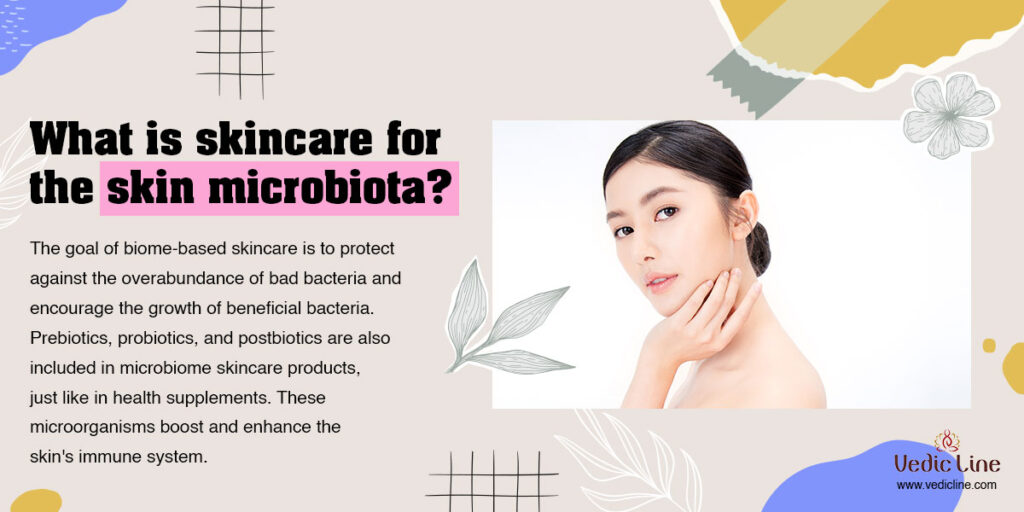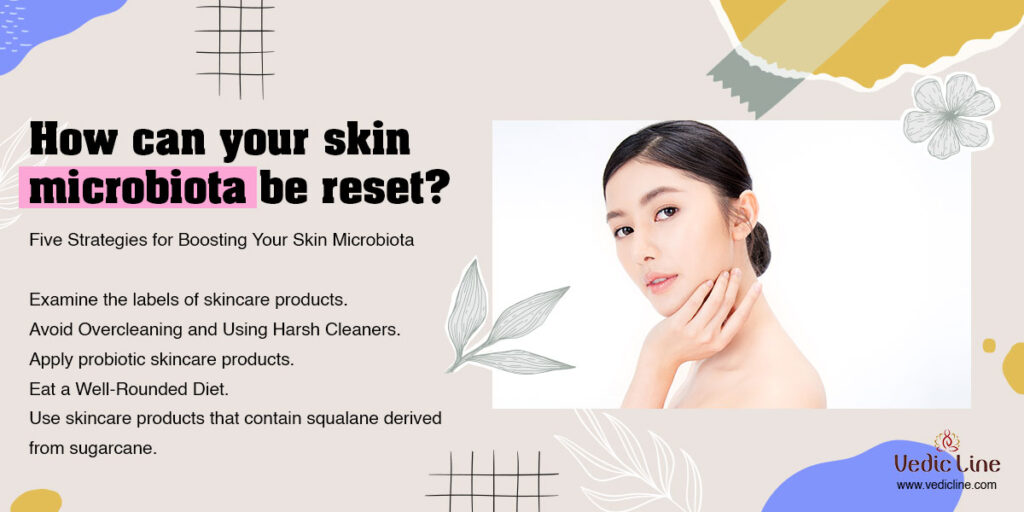Balancing Your Skin’s Microbiome with Probiotic Skincare

Human skin functions as more than just a physical shield it’s a dynamic ecosystem inhabited by a wide array of microorganisms, referred to as the skin microbiome. This intricate community, which includes bacteria, fungi, viruses, and mites, plays a vital role in supporting skin health, defending against harmful microbes, and regulating immune activity. When this microbial balance is disturbed by factors such as pollution, strong skincare ingredients, or antibiotic use, it can contribute to skin concerns like acne, eczema, and rosacea.
Understanding the Skin’s Microbiome
The skin’s microbiome consists of a mix of bacteria, fungi, viruses, and other tiny organisms that naturally reside on its surface. These microbes play a crucial role in defending against harmful invaders, managing inflammation, and preserving the skin’s protective barrier. A diverse and well-balanced microbiome is essential for strong, healthy skin.
However, external factors like pollution, aggressive skincare products, antibiotics, and daily habits can disturb this balance, potentially leading to conditions such as acne, eczema, rosacea, or early signs of aging. Probiotic skincare works to restore and support this microbial harmony, encouraging healthier skin from within.
What Are Probiotics?
Probiotics are beneficial live microorganisms that, when used or consumed in sufficient quantities, offer positive health effects. While probiotics are primarily recognized for their role in gut health, new research indicates they also offer benefits for the skin. Used topically, they can help rebuild the skin’s natural microbiome, enhance its protective barrier, and support overall skin vitality.
Benefits of Probiotic Skincare
1. Rebalances the Skin Microbiome:
Probiotic skincare supports the restoration of the skin’s natural microbial community by encouraging the growth of beneficial organisms and minimizing harmful ones. This balance is key to maintaining healthy, resilient skin.
2. Soothes Inflammation:
Probiotics possess anti-inflammatory properties that help calm redness and irritation, making them especially helpful for those dealing with skin conditions like acne, eczema, or rosacea.
3. Strengthens the Skin Barrier:
A healthy microbiome strengthens the skin’s natural barrier, aiding in moisture retention and providing protection from environmental stressors. Probiotic skincare can boost this defense, resulting in more resilient and hydrated skin.
4. Helps Prevent Acne:
By suppressing acne-causing bacteria and reducing inflammation, probiotics can assist in managing breakouts. A balanced skin microbiome is also less prone to developing acne over time.
5. Offers Anti-Aging Support:
Probiotics may help soften the appearance of fine lines and wrinkles by boosting skin repair and calming chronic inflammation. A well-balanced microbiome supports skin renewal, contributing to a more youthful glow.
6. Improves Texture and Tone:
With consistent use, probiotic skincare can lead to visibly smoother and more even-toned skin, enhancing overall texture and radiance.

How to Add Probiotic to Your Routine
1. Cleanser
Begin with a mild cleanser enriched with probiotics to gently remove makeup, excess oil, and impurities without disrupting the skin’s natural microbiome. Look for ingredients like Lactobacillus or Bifidobacterium.
2. Toner
Next, apply a probiotic-infused toner to balance the skin’s pH and prep it for better absorption of serums and moisturizers.
3. Serum
Apply a probiotic-rich serum to target particular skin issues. These concentrated formulas absorb deeply, delivering beneficial microbes to the layers of skin that need them the most.
4. Moisturizer
Follow up with a probiotic moisturizer to seal in hydration and reinforce the skin’s barrier. This step is vital for maintaining a strong and balanced microbiome.
5. Masks & Treatments
Once or twice a week, treat your skin to a probiotic-rich mask or targeted treatment. These can deliver a potent dose of hydration and help repair the skin barrier for improved overall health.
How to Choose the Right Products
✔️ Key Ingredients
Opt for products that include live probiotics or prebiotics (which nourish good bacteria). Common strains include Lactobacillus, Bifidobacterium, and Bacillus Ferment.
✔️ Stable Formulation
Select products housed in airtight and opaque packaging to protect probiotic potency by limiting exposure to light and air.
✔️ Supportive Ingredients
Look for added skin-loving ingredients like hyaluronic acid, ceramides, and antioxidants that work in harmony with probiotics to boost hydration and strengthen skin defenses.
✔️ Skin Type Compatibility
Choose formulations tailored to your skin type:
- For oily or acne-prone skin: Choose lightweight formulas that won’t clog pores (non-comedogenic).
- Dry or sensitive skin: Richer, more hydrating products can provide soothing and moisture-retaining benefits.

DIY Probiotic Skincare Recipes
If you enjoy a hands-on approach to skincare, here are a few easy, natural probiotic treatments you can make at home:
🔹 Yogurt & Honey Face Mask
Mix plain, unsweetened yogurt with a teaspoon of honey and spread it evenly over your face. Let it sit for 15–20 minutes before rinsing off with warm water. Yogurt’s natural probiotics help restore the skin’s microbiome, while honey provides calming and moisturizing effects.
🔹 Kefir-Based Toner
Mix equal parts of kefir and water to create a gentle probiotic toner. Apply it to your skin using a cotton pad and let it sit for a few minutes before rinsing off. Kefir is packed with natural probiotics that help refresh and balance the skin.
🔹 Fermented Rice Water Rinse
Place raw rice in water and let it ferment for 24 to 48 hours, then strain the liquid for use.Use this nutrient-rich water as a facial rinse after cleansing. It’s known for its probiotic content and skin-softening enzymes.
Final Thoughts
Probiotic skincare is a powerful way to nurture your skin’s natural microbiome, helping to boost its defenses, reduce irritation, and promote a healthier, more radiant complexion. Whether you opt for store-bought formulas or DIY recipes, consistency and choosing products that match your skin’s needs are key.
By embracing probiotic skincare, you’re not just treating the surface you’re supporting your skin’s ecosystem from within.
